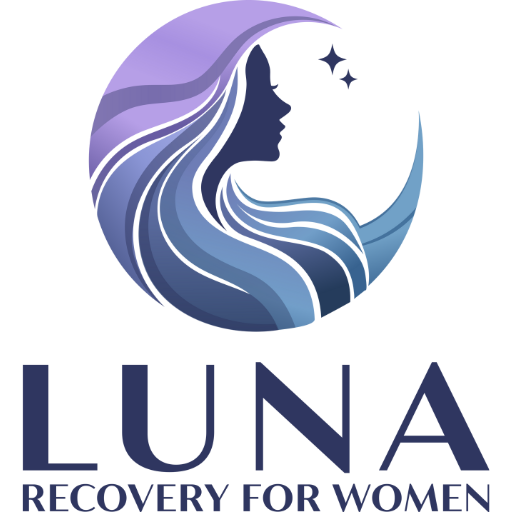Overcoming drug addiction is a deeply personal and often difficult journey that takes time, determination, and constant effort. But while completing a rehab program is a huge accomplishment, the real test begins after treatment ends. Staying clean and avoiding relapse can be one of the most challenging parts of recovery. The truth is, relapse is common—and it doesn’t mean you’ve failed. Instead, it’s a signal that something needs to change.
With the right tools, healthy routines, and strong support systems in place, it’s possible to prevent a relapse and build a life of sobriety.
If you or someone close to you is navigating recovery, it’s crucial to understand what triggers relapse and how to guard against it. Below, we’ll walk through seven powerful ways to maintain sobriety and stay committed to long-term recovery.
1. Understand and Avoid Your Triggers
One of the first—and most important—steps in preventing relapse is figuring out what triggers the urge to use. Triggers can be emotional, environmental, or even social. They’re the people, places, feelings, or situations that spark cravings and make you want to return to old habits.
Common triggers include:
-
Stress and anxiety
-
Sadness, loneliness, or frustration
-
Hanging around people who still use
-
Going back to places linked to past substance use
Once you’ve identified your personal triggers, it’s time to create a strategy to avoid or manage them. For example, if being around certain friends leads to temptation, it might be time to set boundaries or distance yourself. If stress is your biggest trigger, develop go-to coping tools like journaling, meditation, or a workout routine.
Avoiding triggers doesn’t mean living in fear—it means being aware and prepared. When you understand your own danger zones, you can move through life with confidence and make choices that protect your recovery.
2. Build a Solid Support System

Recovery isn’t something anyone should go through alone. Having people who support your sobriety can make all the difference when things get tough. Whether it’s close family, trusted friends, a sponsor, or fellow members of a recovery group, these connections offer accountability, motivation, and a place to share your experiences.
Support groups like Alcoholics Anonymous (AA) or Narcotics Anonymous (NA) provide a powerful community of people who understand exactly what you’re going through. Talking openly in a safe space and hearing others’ stories can be incredibly healing and encouraging.
If you don’t have strong support at home, don’t worry—help is out there. Consider working with a therapist or addiction counselor. They can offer guidance, help you process emotions, and work with you to develop healthy coping skills.
At the end of the day, surrounding yourself with people who respect your recovery and cheer you on is essential. Positivity is contagious—and being around others who are committed to growth helps keep you focused on your own journey.
3. Learn to Cope in Healthy Ways
Let’s be honest—life can get messy. Stress, anger, sadness, and anxiety are all part of being human. And for many people, substance use was a way to numb those feelings. That’s why learning how to handle tough emotions without turning to drugs or alcohol is key to staying sober.
Healthy coping tools you can try include:
-
Exercise: Whether it’s running, hiking, dancing, or lifting weights, physical activity is a proven mood booster. It helps release endorphins, which naturally make you feel better.
-
Meditation & Mindfulness: These practices help you slow down, breathe, and stay present. When you learn to sit with your feelings instead of reacting to them, you gain more control.
-
Creative outlets: Art, music, writing, or crafting give your emotions a productive place to go. They can help you process what you’re feeling without needing to say a word.
-
Journaling: Keeping a journal helps you understand your emotions, track your progress, and reflect on how far you’ve come.
The more you practice these coping tools, the easier it becomes to stay centered, even when life throws curveballs.
4. Stick to a Routine That Works
When you’re in recovery, structure can be a lifesaver. Too much free time or a lack of direction can lead to boredom, which is a major relapse trigger. That’s why creating a healthy, consistent daily routine gives your life purpose and helps keep you grounded.
Here’s what a good routine might include:
-
Waking up and going to bed at the same time each day
-
Eating nutritious meals and drinking enough water
-
Attending work, school, or volunteering
-
Making time for exercise and self-care
-
Scheduling downtime for hobbies, reflection, or relaxation
-
Connecting regularly with supportive people
A well-balanced routine fills your days with intention. It doesn’t have to be rigid—but it should include activities that help you feel productive, calm, and motivated.
When your schedule is full of healthy habits, it’s easier to stay focused and avoid falling into old patterns.
5. Watch for the Warning Signs of Relapse
Relapse isn’t something that just happens out of the blue. It usually comes in stages, and if you know what to look for, you can stop it before it spirals out of control.
The three main stages of relapse are:
-
Emotional relapse: You’re not thinking about using, but you’re bottling up emotions, skipping self-care, or withdrawing from your support system.
-
Mental relapse: The thoughts start creeping in—you romanticize your past use, think about using “just once,” or feel overwhelmed by cravings.
-
Physical relapse: This is the actual act of using again.
The earlier you catch the signs, the better. If you notice yourself pulling away from meetings or feeling more irritable than usual, it’s time to check in with your support system. Talk to your sponsor, therapist, or someone you trust. Sometimes just saying things out loud can stop a relapse in its tracks.
Recognizing the warning signs gives you power. It means you can take action before things go too far.
6. Distance Yourself From Toxic Relationships
People can either be your anchor—or your storm. If you’re serious about staying sober, you need to take a hard look at your relationships. Are the people in your life lifting you up or dragging you down?
Toxic relationships often involve manipulation, judgment, enabling behaviors, or emotional chaos. These are the kinds of people who might encourage you to use again, dismiss your progress, or trigger emotional distress. Even if someone isn’t directly offering drugs or alcohol, their negativity can wear you down and make you vulnerable to relapse.
Here’s what you can do:
-
Set firm boundaries: Clearly communicate what behaviors are unacceptable. If someone crosses those lines, you may need to take a step back.
-
Surround yourself with positivity: Spend more time with people who support your goals and genuinely want the best for you.
-
Limit exposure to harmful environments: If certain places or situations are tied to past substance use, it’s okay to avoid them.
-
Let go when necessary: Sometimes, the healthiest thing you can do is walk away from relationships that threaten your recovery.
If cutting ties feels impossible—especially when it involves family—it might help to work with a therapist who can guide you in creating healthy boundaries and coping strategies.
Remember, protecting your peace isn’t selfish—it’s necessary. Sobriety is fragile, especially early on, and you have every right to prioritize people who bring calm, not chaos.
7. Practice Self-Compassion and Forgiveness
Let’s get real—recovery isn’t a straight line. You’ll have good days, bad days, and everything in between. One of the most important things you can do for yourself is to show compassion, even when you stumble.
Many people in recovery battle feelings of guilt, shame, or self-blame. But beating yourself up for past mistakes only makes the road harder. Instead, try this:
-
Acknowledge your progress: Even small wins matter. Celebrate each sober day, each hard choice you made, and each temptation you resisted.
-
Be kind to yourself: Talk to yourself the way you’d talk to a friend. If you wouldn’t shame someone else for struggling, don’t do it to yourself.
-
Learn from setbacks: If you relapse or slip up, it’s not the end—it’s a chance to learn. What triggered it? What can you do differently next time?
Forgiveness—especially of yourself—is a powerful part of healing. Recovery isn’t about being perfect. It’s about growing stronger, one day at a time.
8. Set Meaningful Goals for the Future
Having something to work toward can give your recovery real momentum. When you’re focused on the future—rather than dwelling on the past—you’re more likely to stay grounded and motivated.
Think about the kind of life you want to build. Your goals don’t have to be huge, but they should matter to you. Maybe you want to:
-
Go back to school or get a new job
-
Rebuild trust with family
-
Travel, volunteer, or start a creative project
-
Improve your physical health and wellness
Setting goals adds a sense of purpose to your daily life. Break them down into small, manageable steps, and celebrate each milestone along the way.
When you’re working toward something meaningful, staying sober becomes more than just avoiding drugs—it becomes about building a life you truly love.
9. Stay Consistent and Celebrate Progress
Consistency is everything in recovery. You don’t need to do everything perfectly—you just need to keep showing up for yourself every single day. That means sticking to your routine, staying connected to your support system, and making your sobriety a daily priority.
But here’s the secret: don’t forget to celebrate your wins. Whether it’s one week sober, one month, or one year, take time to acknowledge how far you’ve come. Reward yourself in healthy, positive ways—a special meal, a day trip, or something as simple as writing a thank-you letter to yourself.
Progress might be slow at times, but every step forward matters. Even on the hardest days, remind yourself that your journey is worth it.
Sobriety isn’t just about what you leave behind—it’s about everything you gain. A clearer mind, stronger relationships, real peace, and the freedom to live fully. Keep going. You’ve got this.
10. Don’t Hesitate to Seek Professional Support

You don’t need to have all the answers. In fact, one of the strongest things you can do in recovery is ask for help when you need it. Whether it’s a therapist, counselor, addiction specialist, or recovery coach, professional support can help you navigate challenges you may not be able to tackle alone.
Here’s why therapy works:
-
Cognitive-Behavioral Therapy (CBT): This popular method helps you recognize and reframe negative thoughts, which often fuel addiction and self-doubt.
-
Motivational Interviewing: A therapist helps you explore your reasons for staying sober and empowers you to make positive decisions.
-
Group Therapy: Talking with others going through similar struggles helps reduce shame and isolation while building a network of support.
-
Medication-Assisted Treatment (MAT): For some, medications like Suboxone or methadone (under medical supervision) can support recovery and reduce cravings.
Recovery is a lifelong process, and there’s no shame in needing a hand along the way. You’re not expected to figure it all out on your own. Professional support adds structure, accountability, and personalized guidance to your recovery journey.
If you’re ever feeling overwhelmed, stuck, or unsure, reaching out can be the turning point that keeps you moving forward.
Don’t hesitate to contact us if you or a loved one needs help—we’re available 24/7 at 1270 Turnpike St, in North Andover, MA (01845).
